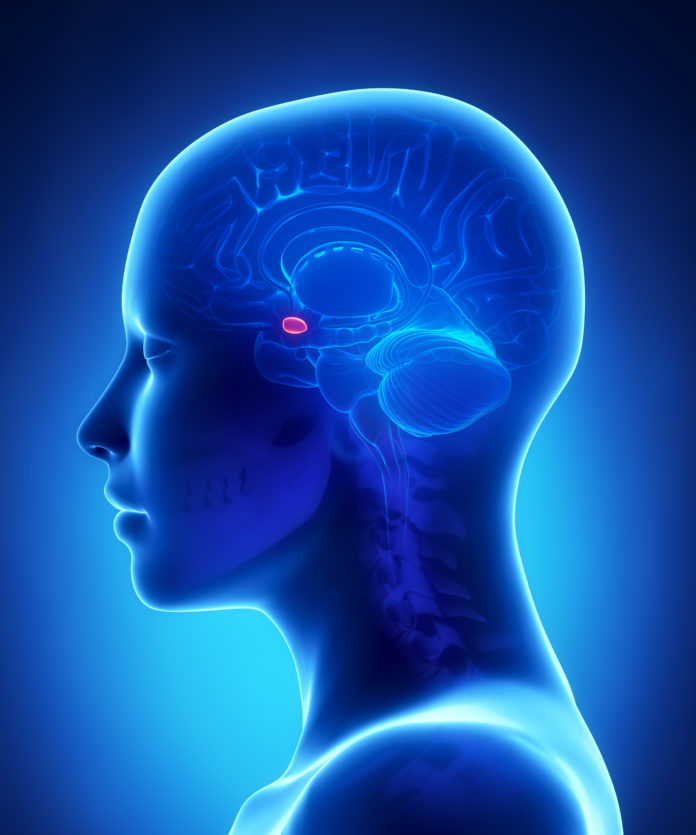Overview
In Sheehan’s syndrome, women lose drastic amounts of blood while giving birth to a child or have low blood pressure reducing the oxygen supply to the woman. The deprivation of oxygen damages the pituitary gland. It is called Sheehan’s syndrome.
About Sheehan’s Syndrome
The pituitary gland produces pituitary hormones helping in the proper functioning of metabolism, reproduction, growth, blood pressure, and sexual maturation. But Sheehan’s syndrome doesn’t allow adequate production of pituitary hormones, which gets defined as hypopituitarism. It impacts the health of the mother, and lifelong artificial replacement therapy may get needed.
What are the symptoms of Sheehan’s syndrome?
It is difficult to notice symptoms of Sheehan’s syndrome in the initial days as they develop slowly. However, look out for the below:
- Difficulty while breastfeeding.
- Irregular menstruation.
- Reduced growth of pubic hair.
- Hypothyroidism: It occurs when thyroid glands don’t produce and release adequate thyroid hormones into your bloodstream. It slows down your body’s metabolic functioning.
- Ineffective cognitive abilities.
- Weight gain.
- Low blood pressure.
- Low body temperature.
- Fatigue
- Abnormal heartbeat.
- Severely low blood sugar levels.
- Shrinking breasts.
What are the causes of Sheehan’s syndrome?
The below-mentioned factors can be the root causes of Sheehan’s syndrome:
- During childbirth: Low blood pressure or heavy blood loss during delivery can damage pituitary hormone-producing tissues impacting the pituitary glands. Hence, the reduction in the production of hormones that control metabolism, sexual maturation, reproduction, and blood sugar levels may cause problems:
- Growth hormones: Growth hormones are responsible for bone and muscle growth. They ensure the balance between fat and muscle tissues.
- Thyroid-stimulating hormones: They are hormones produced by thyroid glands that play a vital role in regulating metabolism. Inadequate production of this hormone can cause hypothyroidism that leads to weight gain.
- Luteinizing hormone: This hormone regulates the production of estrogen in women.
- Prolactin: Prolactin is a hormone in women responsible for breast growth and milk production in breasts.
- Follicle-stimulating hormone: This hormone plays a vital role in ovulation and also egg production.
- Adrenocorticotropic hormone: Adrenocorticotropic stimulates adrenal glands that produce cortisol, which helps you deal with stress and is responsible for regulating blood pressure, immune system, and heartbeat.
All these hormones get stimulated by the pituitary gland. Hence, its damage impacts the production of all these hormones that, in turn, have various repercussions.
When to see a doctor?
- If you are not able to feed the baby
- Unexplained weight gain.
- Low blood pressure.
- Breast shrinkage or reduction in pubic hair growth.
Call 1860-500-1066 to book an appointment
Complications of Sheehan’s syndrome:
- Irregular menstrual cycle
- Low sex drive
- Difficulty in attaining pregnancy and also breastfeeding
- Fluctuations in both blood pressure and blood sugar levels can have severe consequences.
- Unusual weight gain or loss
- Hormonal changes
- Adrenal crisis: Adrenal crisis occurs when cortisol production falls drastically. It is a life-threatening situation as it reduces blood pressure and can lead to death or even death.
Treatment for Sheehan’s syndrome:
As the hormone production in your body gets adversely affected, your doctor might suggest artificial production of the below hormones. It will maintain a balance of all your hormones and ensure the proper functioning of all organs.
- Growth hormone.
- Corticosteroids: Artificial hormones like hydrocortisone and prednisone replace cortisol.
- Estrogen and progesterone: Both of these hormones are very crucial for female reproductive functioning. It will get stopped once the woman reaches menopause age.
- Levothyroxine: Levoxyl and Synthroid increase the level of production of hormones that your thyroid glands produce.
- Regular checkup of blood pressure and blood sugar levels to ensure hormone levels are adequate.
Conclusion
Women may or may not notice Sheehan’s syndrome and live with it for years. But, years of negligence can cause life-threatening situations like adrenal crises. Hence, early diagnosis and timely medical intervention are prerequisites to escape from severe consequences.
Frequently Asked Questions (FAQs)
How is Sheehan’s syndrome diagnosed?
Blood tests, clinical tests, and other imaging studies can reveal any unusual body functioning.
Is it possible to get pregnant if I have Sheehan’s syndrome?
Pregnancy is hard to attain with Sheehan’s syndrome. Although there is a chance, the probabilities are less.
How to identify abnormal pituitary gland functioning?
Symptoms such as unexplained sudden weight gain, mood changes, fluctuating blood pressure, dwindling blood sugar levels, and breast shrinkage can help identify unusual pituitary gland functioning.
Can hormone imbalance due to Sheehan’s syndrome cause neurological problems?
Yes. Drastic fall in essential hormones that play a vital role in organ functioning can cause memory loss and dementia.


















